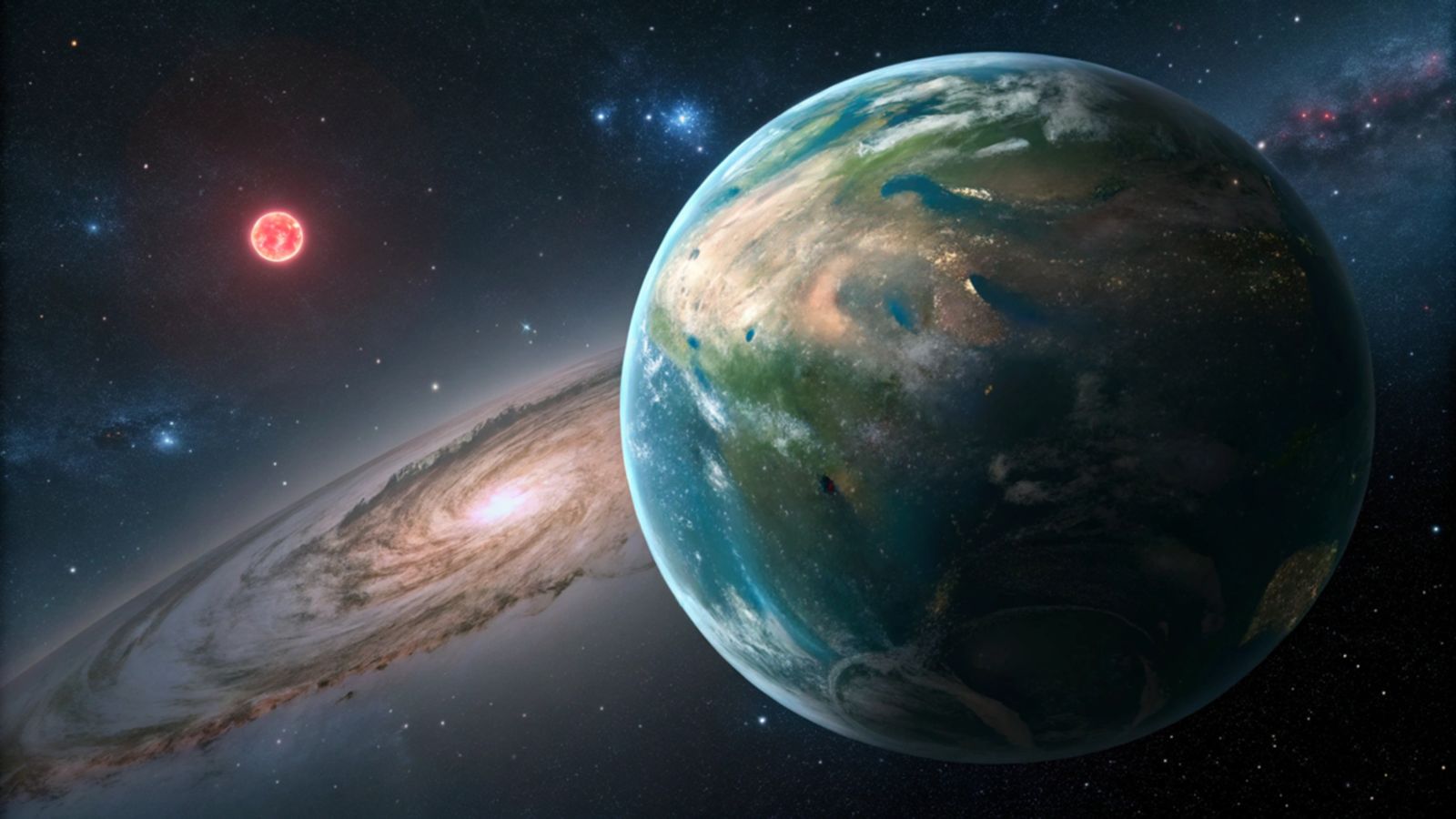This study suggests life could be common and ordinary in the universe 🌍
Follow us on Google News (click on ☆)
David Kipping, an astronomer at Columbia University, analyzed available data on the emergence of life on Earth. According to his work, published in Astrobiology, life emerged shortly after our planet formed, in just 250 million years. This rapidity could indicate a similar process on other similar planets.

The study uses Bayesian analysis to assess probabilities. The results show a 13-to-1 ratio in favor of rapid abiogenesis (the emergence of life from non-living matter) on Earth-like planets. This figure, though subject to change with new discoveries, provides strong support for this hypothesis.
The time window for the emergence of intelligent life is also examined. On Earth, evolution toward complex life forms took nearly a billion years. The Sun, meanwhile, will no longer support life in about 900 million years. This tight timeline highlights the importance of rapid abiogenesis.
Kipping excludes the panspermia scenario in his study, where life would have arrived on Earth from space. He focuses on the hypothesis of a terrestrial origin, strengthening the relevance of his conclusions for other planets.
The implications of this research are vast. If life appears quickly where conditions are favorable, it would increase the chances of finding traces of life on exoplanets. The search for extraterrestrial life could thus focus on young worlds similar to Earth.
This study opens new perspectives for astrobiology. It suggests life could be more widespread than thought, provided the right conditions are met. Future space missions could benefit from these insights to target their searches.
Finally, Kipping notes these conclusions are based on current data. New evidence could alter these estimates. However, the study provides a solid foundation for understanding abiogenesis mechanisms.
What is abiogenesis?
Abiogenesis refers to the process by which life arises from non-living matter. This concept is central to understanding how life could have emerged on Earth and potentially on other planets.
Scientists study various hypotheses to explain this phenomenon. Among them is the synthesis of complex organic molecules from simple compounds under specific environmental conditions.
Laboratory experiments, like the Miller-Urey experiment, have shown that amino acids, the building blocks of life, can form under conditions similar to early Earth. These results support the idea of possible abiogenesis on other worlds.
However, the transition from these molecules to living organisms remains a mystery. Research continues to uncover the missing steps in this process.
How does Bayesian analysis help in astrobiology?
Bayesian analysis is a statistical method that updates the probability of a hypothesis as new data becomes available. It is particularly useful in fields with incomplete information, like astrobiology.
For David Kipping's study, this approach assessed the probability of rapid abiogenesis on Earth-like planets. The results indicate a high probability in favor of this hypothesis.
This method also offers significant flexibility. It allows conclusions to be adjusted based on new discoveries, such as older evidence of life on Earth or exoplanet observations.
The use of Bayesian analysis in astrobiology illustrates how mathematical tools can shed light on fundamental questions about the origin and distribution of life in the universe.